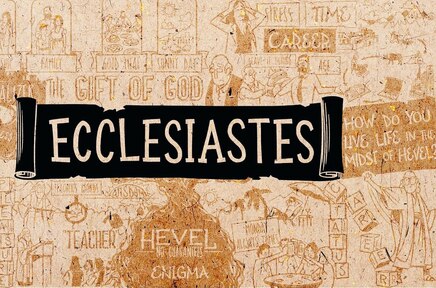The World is Not Enough

Introduction
When Wisdom is Not Enough v.1:12-18
Our wisdom is baffled by the system of Providence, as well as our power. As we cannot resist the decrees of it, so we can find no principle to harmonise its apparent discrepancies. Our safety lies not in rebellion, but in patience, faith, and hope.
So terrible are the restrictions of human destiny, that man can have no perfect liberty here. The seeming disorders of life sorely chafe him. We must be born into another life before we can have complete emancipation and “glorious liberty” (Rom. 8:21).
Solomon does not mean, in so saying, to teach or countenance the revolting doctrine of fatalism; he does not mean that we are to regard ourselves as being in the iron grasp of a remorseless power, in regard to which we have no resources but passively to leave ourselves in its hands.… It is His will—the will of the only Wise, Just, and Holy Jehovah, and not that of His ignorant, erring, and fallen creature, that is to decide what shall be. Let man, therefore, humbly and reverently acquiesce in what the Lord is pleased to ordain as to his earthly estate. “Shall not the Judge of all the earth do right?” [Buchanan].
